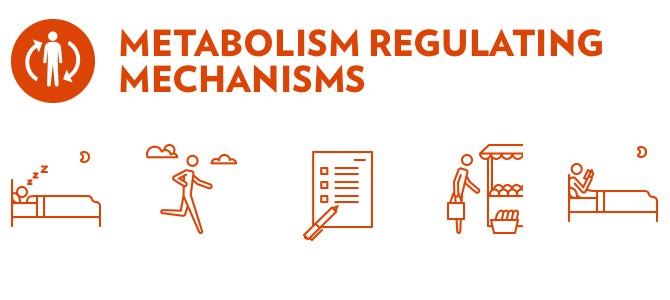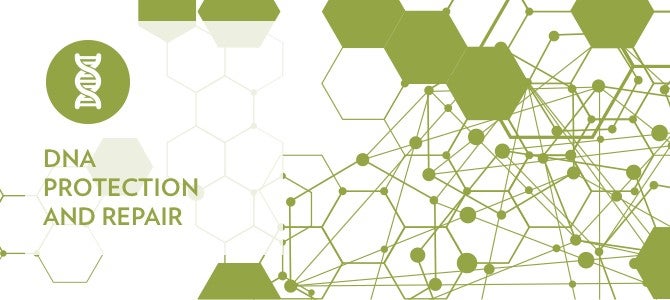Metabolism Regulating Mechanisms
November 29, 2016

When you hear the term metabolism, you might think of the number of calories you burn in a day, or whether eating dessert will impact the reflection you see in the mirror. Although these are all aspects of metabolism, metabolism involves much more—and actually plays a key role in how you age.
THE ROLE OF METABOLISM
In the simplest terms, you might think of metabolism as the processes that manage the delivery, storage, and use of nutrients throughout your body. But ultimately, metabolism encompasses every biochemical reaction that keeps your body functioning. Your body must regulate every stage of this complex process for optimal health and performance throughout the entire body—in every tissue, in every cell. This regulation includes:
• Adapting to what we eat and to our body’s fluctuating nutrient demands.
• Ensuring that blood levels of critical nutrients—like lipids and glucose—do not get too high or low.
• Ensuring that crucial processes take place once the nutrients make it inside the cells.
AGING METABOLISM
Our bodies naturally have mechanisms to keep our metabolism properly balanced. Unfortunately, as we age, the function of these mechanisms and their efficacy decline. In addition, aging aggressors also increase with age. These undesirable changes combine and can expedite the aging process.
Aging is associated with a metabolic shift in lipid and glucose metabolism—indicating a change in our metabolism’s delicately balanced mechanisms. Studies also report that a change typically occurs in our body composition. This change in body composition commonly includes an increase in fat around internal organs, which further contributes to a rise in damaging aging aggressors.
The result of these types of metabolic changes is a vicious cycle that can lead to decreased insulin sensitivity, increased fat storage, loss of lean muscle tissue, and increased glucose and triglycerides in the blood. These factors accelerate the aging of tissues throughout our body.
As you can see, mechanisms that regulate our bodies' metabolism have a direct influence on how we age. This is why the scientific community has invested so much time and effort into discovering ways to counteract the aging aggressors associated with metabolism dysregulation.
To learn more about your body’s natural defenses against aging aggressors, visit Introduction to Aging Defense Mechanisms (ADMs).

Written by:
Steven Tolboe
Technical Communication & Education Manager
Pharmanex
Sources:
1) Ma Y, Li J. Metabolic shifts during aging and pathology. Compr Physiol. 2015 Apr;5(2):667-86
2) Barzilai N, Huffman DM, Muzumdar RH, Bartke A. The critical role of metabolic pathways in aging. Diabetes. 2012 Jun;61(6):1315-22



 banner.jpg)